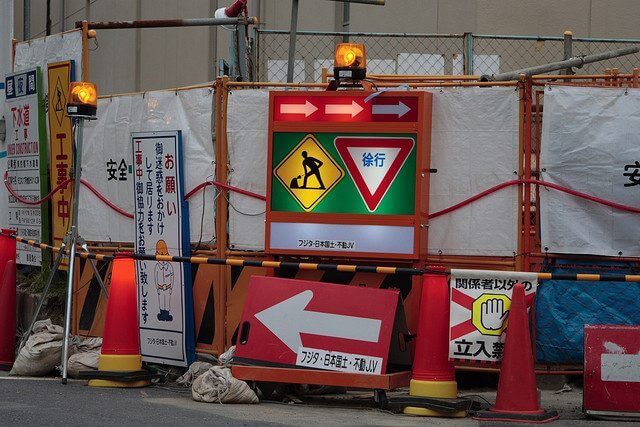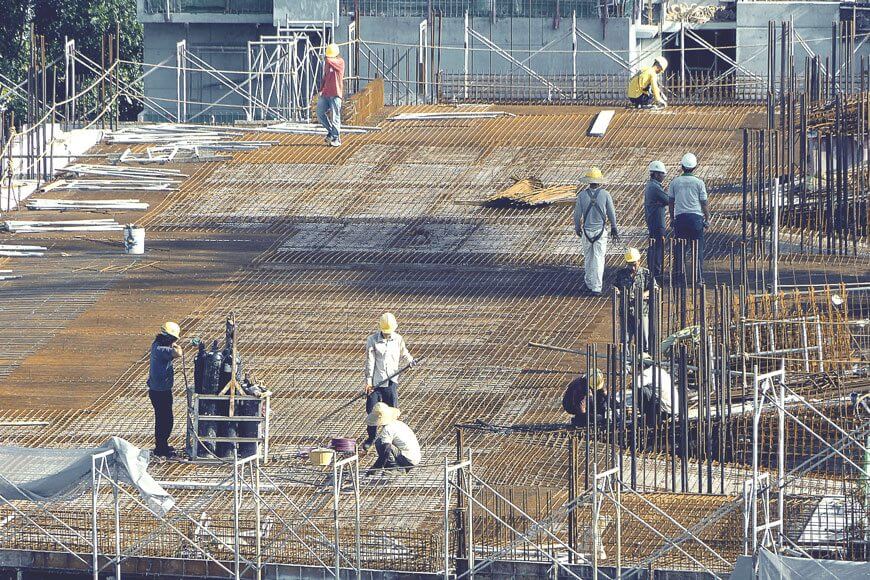How would you describe your process of creating daily construction reports? If your answer is something along the lines of time-consuming, tedious, etc., it might be time to rethink your methods.
If you can simplify your daily construction reports by recording the right information correctly, you can finish in minutes right from the job site—no more after-hours paperwork in the office.
If you want the quick answer, here it is: The key to reducing wasted time and inefficiencies in your progress reporting is digitalisation. If you want to learn why, keep reading.
Free eBook: Quick guide to Lean practices for construction professionals
Why do you need to keep detailed daily construction reports?
What’s your biggest fear as a construction project manager? Disputes, delays, cost or schedule overruns? All of the above?
Keeping a detailed daily construction report is useful for more than tracking project progress and productivity; it decreases your risks of experiencing those fears that keep you up at night. The importance of construction reports goes beyond just monitoring the project’s progress. It can also help reduce the risks associated with construction projects.
One of the most significant risks that construction project managers face is disputes. Disputes can arise from different sources, such as disagreements with contractors, vendors, or subcontractors. When disputes occur, they can significantly impact the project’s progress and delay completion. By keeping detailed daily construction reports, project managers can provide evidence that can help resolve disputes promptly.
Another risk that project managers face is schedule overruns. Delays can occur due to various reasons, such as unforeseen circumstances, changes in the design or scope of work, or issues with the construction materials or equipment. Daily construction reports can help project managers identify the causes of delays and take corrective actions promptly to ensure that the project remains on schedule.
Cost overruns are also a significant concern for construction project managers. Keeping detailed daily construction reports can help project managers track expenses, identify areas of inefficiency, and take corrective action to prevent budget overruns.
So why do site managers slack on their construction reports? They use inefficient and outdated processes to create and manage their reports. The solution lies in finding a way to simplify those processes through digitalisation so that creating reports is no longer a burden.
We take an in-depth look at the importance of daily construction reports here.
 What should your daily construction report include?
What should your daily construction report include?
Even though each project is different, and your construction reports will include different information for each one, there are some factors that you should include no matter what to ensure that your logs are complete:
- Job details: Include all relevant data about the job site, including the activities that happened that day and the current phase of the project.
- Progress made: Record each task worked on and its current status (completed, delayed, in progress, waiting, etc.).
- Weather conditions: Note the day’s weather, including wind speed, temperature, precipitation, and any events that could lead to delays.
- Equipment used: Document any equipment or machinery present, how many hours they were used, and if any heavy machinery was left idle that day.
- Crew list: List every worker present on site, organise them into categories (GCs, subs, tradespeople, etc.), and total the hours worked by each one.
- Materials on site: Perform an inventory of which materials were used throughout the day and how many are still available.
- Materials delivered: Write down any materials delivered (or scheduled to be delivered), including the types and quantities.
- Potential delays: Add any events that have caused or may cause project delays—even if it was recorded in another section of your report.
- Safety evaluation: Complete an evaluation of safety incidents, whether protocols were followed, and any hazards discovered by your job site inspection.
- Site visitors: Count everyone that was on your site, including family members, board members, investors, project owners, etc.
That’s a lot of information to take in and record – so how do we simplify the process of creating daily construction reports? The first step is to ditch the old-fashioned way of manual data entry.
More to read: How can a digital site diary improve on-site quality control?
Why handwritten progress reports don’t cut it
No site manager enjoys creating daily construction reports, but the process is especially time-consuming if you manually draft them.
Unless you’re writing your reports throughout the day while you walk the site, you likely rely on deciphering hastily-written notes or recounting details from memory—both of which make your life challenging and can result in less-than-perfect reports.
The best way to simplify the process is by moving away from handwritten construction reports and moving to a digital site diary. This can also help you avoid the pitfalls of manually writing out daily progress reports.
Most project managers who don’t use a construction site management app to keep daily logs don’t work on their reports on-site—they wait until they’re back in the office. Doing so not only tacks on extra hours after a long day but also leads to inefficiencies.
You’ll almost certainly miss some key details or forget about some events that occurred during the day; you likely get pulled around all over the busy job site.
This lack of complete information can result in delays, disputes, safety risks, and other issues project managers never want to see.
The solution? Tracking site progress in real-time to record information about on-site activities quickly and accurately as they happen.
You might also like: Construction site management 101: Top tips for a well-managed job site
Simplify your daily construction reports with the right construction management software
We already told you that digitalisation is the key to simplifying your daily construction reports. Great! But how do you do that?
You need to find digital solutions that align with your construction company’s needs and goals. Ensure that the software you choose supports construction reporting best practices:
- Real-time reporting directly from the job site
- Detailed documentation of site activities
- Transparent site progress and report sharing
- One-touch reports from field to office
Simplifying your daily construction reports is just the start. We build software for builders who know the importance of using the right tools for each job. Book a free demo and see how we can take your time-consuming, tedious processes and turn them into efficient ways to increase productivity in all aspects of your projects.




